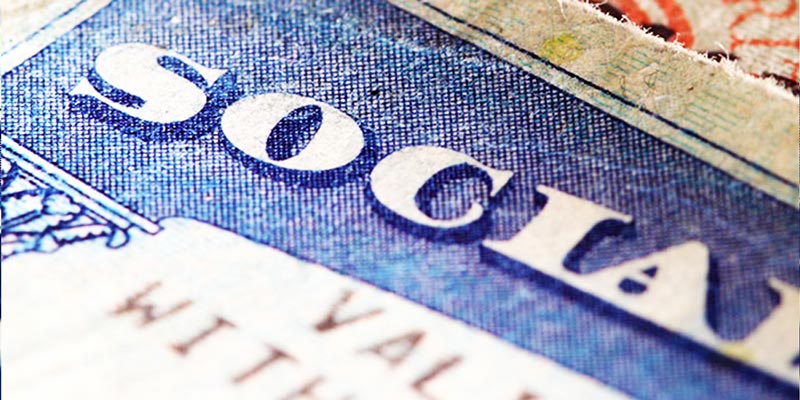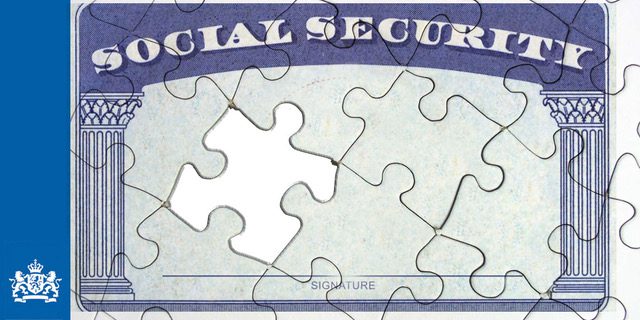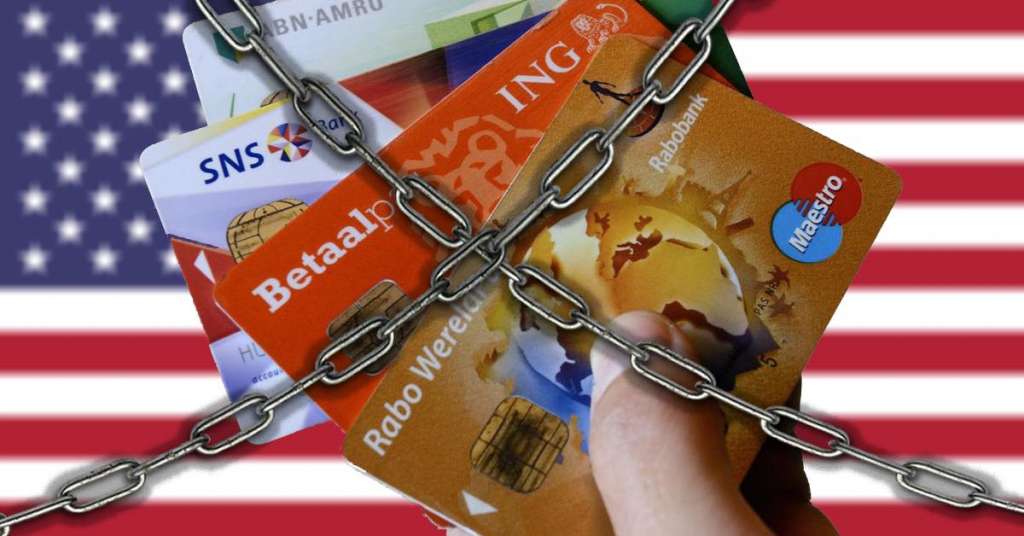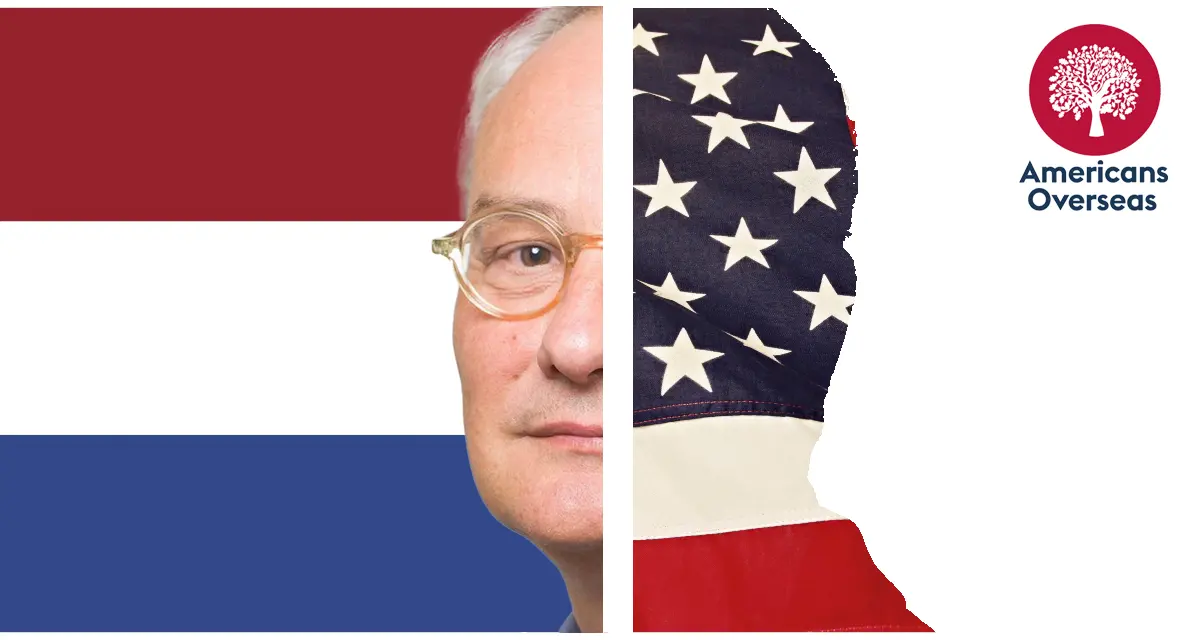
American Dutch get more time for SSN application

News for American Dutch: more time for SSN application to avoid the closure of their Dutch bank accounts.
The joint efforts of the Dutch Ministry of Finance, Americans Overseas, and the Dutch banking association NVB have resulted in a longer transitional phase, in which American taxable persons living in the Netherlands can apply for a Social Security Number SSN number. This means that from September 2017 onwards they will have more time to complete necessary steps to avoid the closure of their Dutch bank accounts.
The American Internal Revenue Service (IRS) has announced that penalties for banks, that have American taxable persons without social security numbers (SSN) as clients, will be delayed until 2019. As a result, American-Dutch has more time to apply for an SSN. An SSN is required to submit a US tax declaration. The social security number SSN is comparable to the BSN (burger service nummer) in the Netherlands.
Closure of bank accounts of American Dutch clients
The IRS’ policy of penalizing banks threatens to have counterproductive effects: In the short term, banks could be forced to stall their financial services to existing clients without an SSN or refuse new ones.
From September 1st, 2017, bank accounts of American-Dutch have faced a substantial risk of closure. Tens of thousands of American-Dutch may have faced an immediate interruption of their banking services. Investment banks such as Binck and Alex have not accepted any new American-Dutch clients for years, due to the foreseen complications with IRS policy.
This problem has been forestalled at least until 2019, as the IRS clarified on September 27th, 2017.
Applying for SSN quickly
It remains of utmost importance for American-Dutch to apply for an SSN as quickly as possible. The US tax department’s deferral is tied to very strict requirements on the side of banks and ultimately banks must still provide all requested information. This temporary relaxation of the IRS policy in the form of a deferral is the result of the combined efforts of the Dutch Ministry of finance, Americans Overseas, and the Dutch Banking Association NVB.
Since July 2014, new US tax regulation (FATCA) obliges overseas financial institutions to report data of clients who are taxable persons in the States. The Dutch and US governments have made agreements regarding FATCA on the basis of which Dutch banks are also required to comply with the regulations.
They are required to verify whether a client falls under the scope of US tax policy; in such cases, they are obliged to provide information to the US tax department IRS, with the Dutch tax department acting as liaison.
Within this new regime, the US has the right to impose severe fines for banks that do not comply or submit incomplete data.
Dutch banks provide data on American Dutch to the IRS
Within the most recent IRS directive, Dutch banks are still required to provide information on a yearly basis, yet are exempted from offering their clients’ SSNs under strict conditions. These conditions specify that the bank provides all names, addresses, and account numbers with the respective highest balances for all their taxable American-Dutch clients.
Data of American-Dutch with a Dutch bank account, who have not yet responded to the call of their banks to share information such as their SSN, will nonetheless be referred to the IRS. Furthermore, banks are required to inform their clients at least once a year of their responsibilities. Banks are also charged to review digital files to locate missing data of their American-Dutch clients.
Under these conditions, American taxable persons in the Netherlands gain more time to apply for an SSN. It goes without saying, that it remains very important for American Dutch to apply for an SSN and provide it to their bank as soon as possible. With loopholes being closed, it is becoming increasingly difficult for American Dutch to uphold claims of lacking information or ignorance.
IRS amnesty procedures for American Dutch
The IRS offers various amnesty procedures based on willful or non-willful violations of the US tax code. American Dutch are always required to submit US tax declarations – in most cases, however, they do not incur any taxation on their income.
Need more information on applying for an SSN as American Dutch?
The United States is the only developed country that globally taxes its citizens based on citizenship instead of residence. This includes US nationals with and without passport, green card holders, and others.
You can find more information on requesting an SSN here. Do not hesitate to contact Americans Overseas for more information.
Contact us for more information
Sources:
Frequently asked questions
Understanding the US tax system, the obligations, and all the additional terms can be difficult. Especially if one lives outside of America. Is your question not answered? Contact us.
-
Who is required to file taxes in the US?
U.S. citizens and resident aliens who live abroad are generally required to file a federal income tax return and pay taxes on their worldwide income.
Read more... about Who is required to file taxes in the US? -
Do US citizens living abroad still have to file taxes in the US?
Yes, US citizens are required to file taxes on their worldwide income, regardless of where they are living.
Read more... about Do US citizens living abroad still have to file taxes in the US? -
How can I cash my US check?
Received an American check? You can cash your check in the following ways: cash the check at your own bank, transfer to another person (endorsement), cash checks using an online service or cash the check by another bank.
Read more... about How can I cash my US check? -
Are there any special tax forms required for US citizens living abroad?
US citizens living abroad may be required to file Form 2555 and/or Form 1116 to claim the foreign-earned income exclusion.
Read more... about Are there any special tax forms required for US citizens living abroad? -
What is FBAR filing?
FBAR (Foreign Bank Account Report) filing is the requirement for certain U.S. individuals and entities to report their foreign financial accounts to the Financial Crimes Enforcement Network (FinCEN) of the U.S. Department of Treasury. The FBAR filing requirement applies to U.S. persons who have a financial interest in, or signature authority over, one or more foreign financial accounts if the aggregate value of those accounts exceeds $10,000 at any time during the calendar year.
Read more... about What is FBAR filing?





